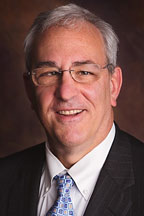
“Cacapon State Park is a state asset. It’s too important to let die.”
-State Sen. Charles Trump, R-Morgan
BERKELEY SPRINGS, W.Va. — State Sen. Charles Trump, R-Morgan, has had some good conversations with Gov. Earl Ray Tomblin as a result of Trump trying to get funding for an expansion project at Cacapon State Park in Morgan County.
“I’m convinced (Tomblin) is not cold on the project, if it can be done without borrowing,” Trump said Wednesday in a telephone interview. “I’m encouraged that the governor does not think this is a parochial or provincial project. It’s positive for the whole state.”
The $23.5 million project would add 82 lodge rooms at Cacapon State Park, a new dining room and lounge with a modern commercial kitchen, an indoor/outdoor pool and spa, more conference rooms and restore the park’s 18-hole Robert Trent Jones Sr. signature golf course, as well as make improvements to the park’s infrastructure.
Funding for the Cacapon project and a $29 million construction project at Beech Fork State Park in Wayne County was to have come from excess lottery money.
Senate Bill 362, passed in 2012 and signed by Tomblin at a ceremony at Cacapon State Park, set aside $3 million of excess lottery money each year for 30 years to finance bonds to pay for the projects at Cacapon and Beech Fork.
Tomblin also signed documents certifying the bond sale in the Morgan County Commission chambers in October 2012.
However, the bonds have never been sold, putting an indefinite hold on the construction projects.
Tomblin’s chief of staff, Charles O. Lorensen, said in an earlier statement that bonds backed with lottery revenues could not be sold at this time because lottery revenues are insufficient to support issuing more bonds backed with lottery revenues. With the increased competition from casinos in neighboring states, gambling revenues are too low to finance bond sales, and that trying to sell lottery-backed bonds could seriously damage the state’s bond rating.
During the recently completed legislative session, Trump was able to have language included in a supplemental appropriations bill that would have prevented the transfer of funds from several accounts to the general account until the bonds were sold.
Tomblin vetoed that part of the bill. In his veto message, Tomblin again cited the low gambling revenues and the damage selling more bonds could do to the state’s very good bond rating. He also questioned if the Legislature had the constitutional authority to force the sale of the bonds.
Tomblin’s veto prompted Trump’s conversations with the governor.
“I’ve known Gov. Tomblin for 25 years and he has always been straight with me during those 25 years,” Trump said. “I’ve never questioned anything he’s ever told me. I’m going to work on alternative funding sources this year. But if we can’t find the funding, I’ll probably be a little more assertive and aggressive during the next legislative session to get the project going.”
He said it is premature to discuss what those alternate funding sources might be, though.
“This project is absolutely not dead in the water,” Trump said. “It is not only an important project to the area, but to the whole state. Cacapon State Park is a state asset. It’s too important to let it die.”
Trump added that he understands Tomblin’s reluctance to issue bonds that might damage the state’s bond rating.
State Delegate Daryl Cowles, R-Morgan, the majority leader in the House of Delegates, expressed frustration with not being able to move the Cacapon State Park project forward.
“It’s a great project,” he said Wednesday in a telephone interview. “It would make Cacapon profitable. It is a necessary, economically viable project.”
Cowles said an alternate funding source might come from revenue from leasing public lands for drilling for natural gas, such as in the Marcellus shale under the Ohio River.
“But I’m not sure it’s realistic to sell bonds based on natural gas royalties,” he said.
A private-public partnership also has been mentioned as a way to fund the improvements to Cacapon State Park.
– Staff writer John McVey can be reached at 304-263-3381, ext. 128.






